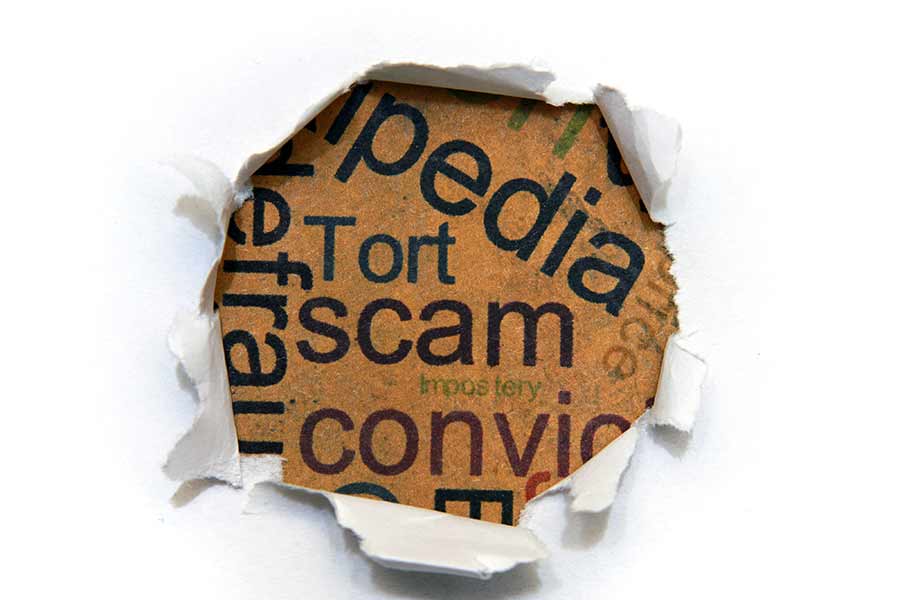Paying taxes is something that every American wish they did not have to do. For as long as taxes have existed taxpayers have been trying to find ways to owe less money to the government. Some taxpayers just fail to pay taxes while others may try to cut corners to minimize the amount that they will owe. Others will just engage in behavior that is considered fraudulent by the IRS.
A Scam Can Take Many Forms
Interestingly, at the same time, many taxpayers are falling victims to scams that have been in circulation for years, the IRS also falls victim to the many scams being carried out by the taxpayers themselves. Being a participant or a recipient of a scam is dangerous, expensive and has longstanding consequences.
The increased use of the internet to conduct personal business has given people one more avenue to develop creative ways to lure the unsuspecting out of their hard-earned cash. Phishing has become a commonly used scam tactic to fool unsuspecting taxpayers while charitable deduction scams have become a tactic commonly used by taxpayers and organizations to try and fool the IRS.
Taxpayers should be aware of phishing scams asking them to donate to charity as this may be a ploy to get access to confidential information. Taxpayers who do donate to charitable organizations should be aware of the laws for tax reporting to ensure compliance. Charitable organizations that are considered tax-exempt also have a responsibility to donors and the IRS to ensure that all transfer of money and exemptions are accurate and by the book.
Every year in an effort to educate the public and draw attention to these illegal acts the IRS publishes a list of the most popular scams of the year. The IRS list offers information on the top 12 scams – or the “Dirty Dozen,” as it has become well known as. This list is posted on the on the official IRS website in hopes of exposing these scams and to working towards minimizing the number of people who fall victim to them every year after year. Regardless of the education and the exposure, year after year the scams are recreated in an attempt to fool individuals into giving up confidential information to these hijackers.
A Charitable Donation Scam list is also in circulation on the IRS website. There are several tactics used by taxpayers to maximize tax breaks that are also considered scams in the eyes of the IRS. The Internal Revenue Service (IRS) also falls victim to scams by both taxpayers and charitable organizations that engage in practices that may be considered illegal according to the tax laws.
A charitable deduction scam occurs when attempts are made to alter tax reporting
Through the use of charitable donations Individuals and organizations alike engage in these charitable donation scams and if discovered by the IRS may be subject to criminal charges. The IRS has zoned in closely to the increase in scams out there that relate to the reporting of charitable deductions.
Examples of Charitable Deduction Scams
Individuals who claim that their home is a church for purpose of tax-exemption is considered a scam if this is only a ploy at avoiding taxes. When a home is declared to be a place of worship with clergy and a minister, it becomes tax-exempt. The minister’s income and the home are exempt from taxes. Oftentimes, the IRS discovers that this “church” is nothing more than a family home that has assigned family members the title of officers for tax break purposes.
Tuition payments being claimed as charitable deductions are another form of a scam. The IRS has noted an increase of individuals who pay tuition to a religious school or a private institution writing these payments off as charitable deductions when, in fact, they are making payments for tuition costs.
When a charity solicits donations and then offers refunds to the donors, this is known as a kickback. The donor receives his or her money back and also benefits from the tax write-off. The problem with this situation is that both parties are benefiting from the donation either monetarily or through tax breaks, while the IRS loses money in the deal.
Scams are expensive and painful for all involved. Avoid being a participant or victim of a scam by being informed and aware of the potential for illegal activity. Know the rules of the IRS and if questions arise, you should seek out the advice of the IRS directly.



Leave a Reply
You must be logged in to post a comment.